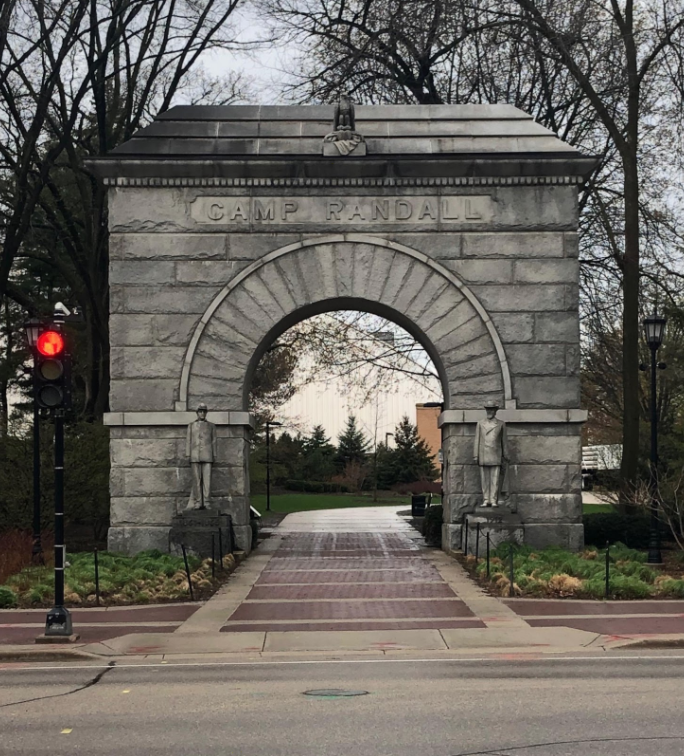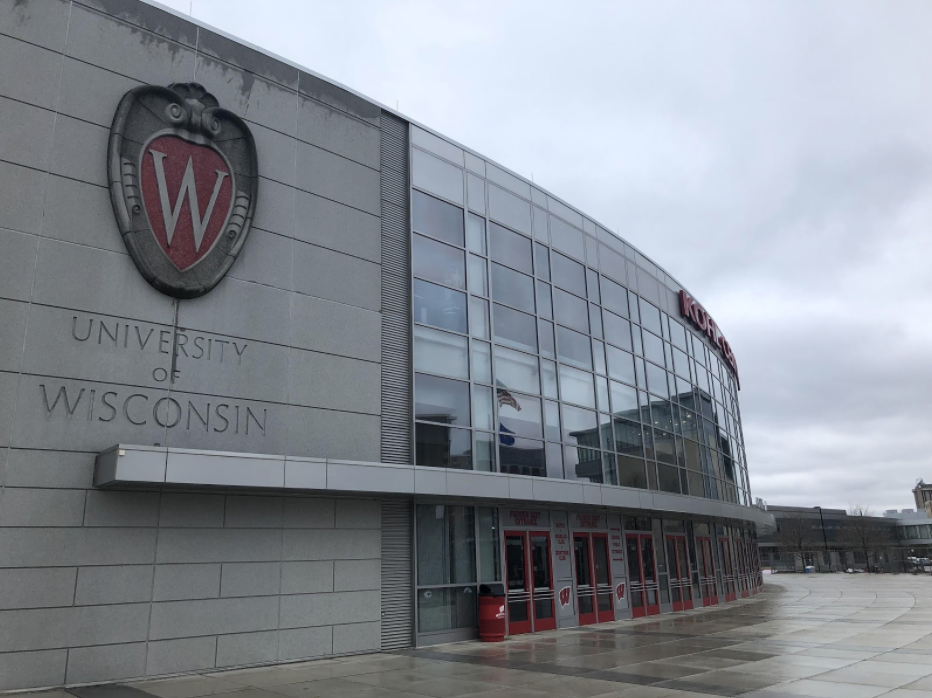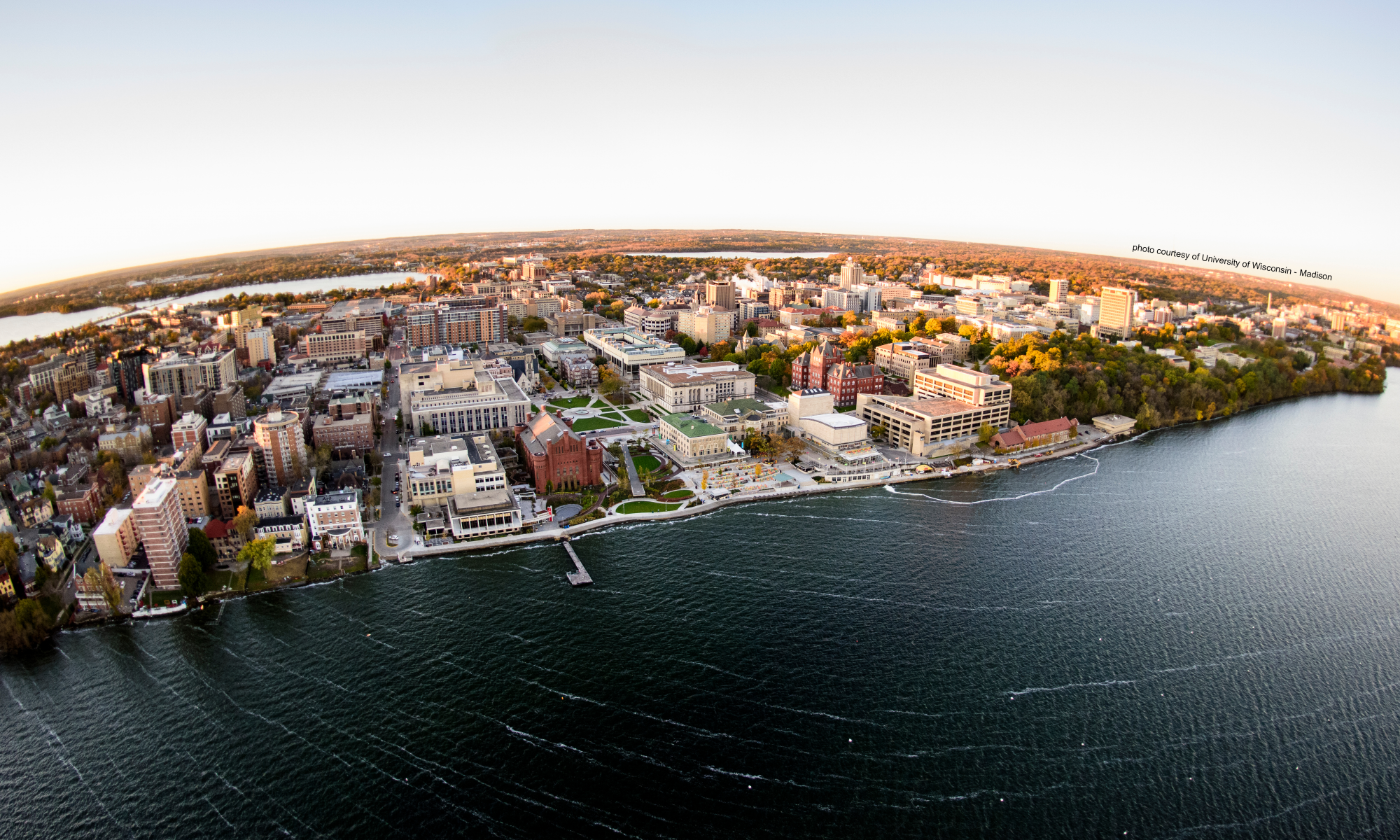Sports came to screeching halt in light of COVID-19 pandemic
By Ben Farrell

On the evening of Wednesday March 11, Utah Jazz starting center and reigning NBA Defensive Player of the Year Rudy Gobert tested positive for novel Coronavirus, and within weeks, almost every major sporting event for the foreseeable future had been postponed or cancelled because of the virus. For some, these cancellations have caused the sudden disappearance of much-loved pastimes. For those whose livelihoods rely on sports, the situation has been far more dire.
Wide ranging effects have altered the lives of journalists, from dashed coverage plans to lost wages, jobs and health insurance. According to Colten Bartholomew, Madison.com and Milwaukee Journal Sentinel reporter covering the University of Wisconsin football team, advertising revenue for Lee Enterprises, his publication’s parent company, tanked dramatically as a result of nationwide shutdowns. Executives at the media conglomerate took pay cuts across the board. On top of that, Bartholomew and other full-time employees are required to take two week-long furloughs over the course of the coming months.
Though it is hoped that these spending cuts will keep the publication afloat, Bartholomew remains cautious regarding his future employment. “If things continue like this, or get bad in any way, sports is obviously the first thing on the chopping block, on the local scale especially.” Because football is a fall sport, Bartholomew’s work has remained relatively unaffected by the quarantine thus far. “Lucky for them and me, Badgers players got their pro day in just before quarantine began,” he said.
The University of Wisconsin men’s basketball team and media members covering it weren’t so lucky. WSUM Sports Director, Badger’s Wire and USA Today contributor and Locked On Badgers host Asher Low’s lifelong dream of calling the NCAA Men’s Basketball Tournament was dashed. “It killed me to do this,” said Low, who is graduating from the University of Wisconsin this spring, “but on March 1, the day the Ivy League canceled, I said to myself, ‘look, we’re not going.’ It’s my favorite event in sports, and that was my last chance as a Badger to call it.”
With Badgers men’s basketball slated for an above-average performance this year, Low felt this could’ve been his single shot at a dream-like run with his classmates on the team. “I bet we would’ve gone to the second weekend too. We were looking really, really good,” he said. Low also detailed the adjustment of producing current and newsworthy college sports pieces for the USA Today-owned blog Badgerswire, in the absence of meaningful sports news outside of the NFL Draft. “Ninety percent of what we’re putting out right now is the kind of stuff we know will get clicks anyway. Season in-review pieces, Badgers where-are-they-now pieces… but not having March Madness is just a huge adjustment that we weren’t ready for.”

Though media organizations that rely on small markets are particularly vulnerable, COVID-19 related financial concerns have also led to furloughs at the national level. Mike Prada, former NBA editor at SB Nation, a leading blog in niche sports reporting, received word on April 15 that a three-month furlough, from May 1 to July 1, was on its way. Vox Media, SB Nation’s parent company, made the decision to furlough 20% of its editorial staff in light of COVID-19 related financial concerns.
Prada said the announcement was jarring, but he wasn’t completely taken off guard. “Sometime around mid-February, I began to sound the alarm to friends and family about what it would mean for the NBA and for the U.S. in general, that this was going to really mess things up,” he said. Prada attributed his foresight to the industry he works in. “Well, we cover sports, but this stuff clearly matters. The NBA claims that they were ahead of the curve as the first professional sports league to shut down, but the fact is they were planning before that, so it kind of came across in our work as we were gauging their response to all this.”
As of right now, Prada doesn’t have much to cover outside the NBA Draft. Usually this time of year would be chock-full of playoff basketball. Instead, the season was cut short on March 11. Most teams had played 62 to 65 of t—heir regular season games, leaving the 2020 championship vacant.
The postseason is an extremely important part of the NBA’s season, both symbolically and financially the crescendo at the end of the NBA’s lengthy regular season. To compound these concerns, television revenue from the playoffs is crucial to the league’s financial success. If the NBA does not finish its season, players, owners and executives stand to lose millions. “There’s a good chance they’ll try [to finish playoffs]. This league is all about money, so it’ll probably take some sort of government moratorium to stop them,” Prada said.
Many in and around the league have discussed quarantining participating players, coaches and staff in a hotel and playing the games without an audience. Prada believes that the season should be scrapped due to safety concerns, even in light of what would be the resulting large-scale losses to both journalism and the NBA. “That model of putting guys in a hotel would be a cruise ship basically, functionally, and as we’ve seen, cruise ships—putting a lot of people in condensed spaces and incubating—have lead to some of the worst outbreaks.”
The NBA announced on April 25 that they were planning to allow teams to open their practice facilities to players and staff beginning May 1, shifting focus onto when, not if the league will try to finish its season.
That said, the future schedules of almost every sport at both the collegiate and professional levels remain unclear. Bartholomew voiced concerns about lost revenue affecting play in the future. “If college football isn’t played next year, and since we didn’t have March Madness, a lot of these teams might have to consider cutting programs,” he said.
For now, journalists and fans alike will have to wait and see how leagues worldwide address these issues. Prada, though, perhaps the most well known of the three, was most skeptical about the future of sports journalism. “Probably, we’ll see a drop in the number of legitimate NBA insiders, and a clearing out of the middle, of midsize publications.” Though Prada’s words should be taken seriously, nobody can predict what will happen in coming months. Now comes the waiting.
